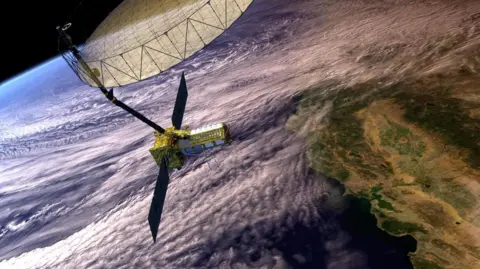India Launches Climate Data Satellite
In a significant stride toward enhancing climate research and environmental monitoring, India has successfully launched its latest climate data satellite, marking a major advancement in the country’s space and ecological initiatives. This satellite is designed to provide comprehensive, high resolution data on atmospheric conditions, greenhouse gas concentrations, and land and ocean surface temperatures. The launch underscores India’s commitment to leveraging cutting edge technology for better understanding climate dynamics, supporting sustainable development goals, and contributing to global climate action.
The new satellite, named “EnviroSat 1”, is equipped with advanced sensors capable of capturing real time data across multiple spectral bands. It monitors critical climate variables such as carbon dioxide (CO₂), methane (CH₄), aerosols, and water vapor concentrations, along with surface reflectance patterns. These measurements enable scientists to track sources and sinks of greenhouse gases more accurately and assess the impacts of climate change on biodiversity and weather systems. EnviroSat 1 also integrates imaging instruments that provide detailed views of deforestation, urban expansion, and glacial retreat, thus offering vital insights into human induced environmental changes.
This launch complements India’s existing satellite constellation focused on meteorology and natural disaster management, adding a dedicated platform for climate science. The satellite’s data is expected to enhance predictive capabilities for extreme weather events such as cyclones, droughts, and heatwaves, which have become increasingly frequent and intense. By providing timely and precise climate information, EnviroSat 1 will aid policymakers, researchers, and disaster management agencies in crafting effective mitigation and adaptation strategies, thereby reducing vulnerabilities and safeguarding communities.
One of the key features of this mission is the emphasis on open data access and international collaboration. The Indian Space Research Organisation (ISRO) has committed to sharing climate data with global climate research networks, fostering transparency and cooperation. This move aligns with global efforts under frameworks like the United Nations Framework Convention on Climate Change (UNFCCC) and the Intergovernmental Panel on Climate Change (IPCC), where accurate data sharing is essential for coordinated climate action. Regional partnerships in South Asia and beyond stand to benefit from improved climate monitoring, supporting cross border initiatives on environmental conservation and disaster preparedness.
The deployment of EnviroSat 1 also reflects India’s growing expertise in space technology and its strategic vision of harnessing science for societal benefit. The satellite’s development involved collaboration between ISRO, national research institutes, and academic centers specializing in earth sciences and atmospheric physics. Innovations in miniaturized sensors, data processing algorithms, and satellite communication have contributed to making the mission cost effective while maintaining high data fidelity. This achievement showcases India’s ability to contribute valuable scientific tools to the global community at a time when climate challenges demand urgent and informed responses.
Environmentalists and climate experts have welcomed the launch, highlighting the satellite’s potential to fill critical data gaps and improve climate models. Accurate, localized climate data is essential for understanding regional variations in climate impacts, which global models often overlook. For instance, monsoon patterns, urban heat islands, and coastal erosion are phenomena that require detailed observation to devise targeted solutions. EnviroSat 1’s continuous monitoring capabilities will provide the granularity needed to inform national climate policies and support India’s commitments under the Paris Agreement to reduce emissions and enhance climate resilience.
Looking forward, the Indian government plans to integrate EnviroSat 1 data into broader environmental monitoring systems, combining satellite observations with ground based measurements and socio economic datasets. This holistic approach will enable comprehensive assessments of climate risks and sustainable resource management. Moreover, plans are underway for future satellite missions with enhanced capabilities, including sensors for ocean salinity, soil moisture, and atmospheric chemistry. By advancing its satellite infrastructure, India aims to be a leader in climate science innovation, supporting both domestic development and international climate goals.
Science











